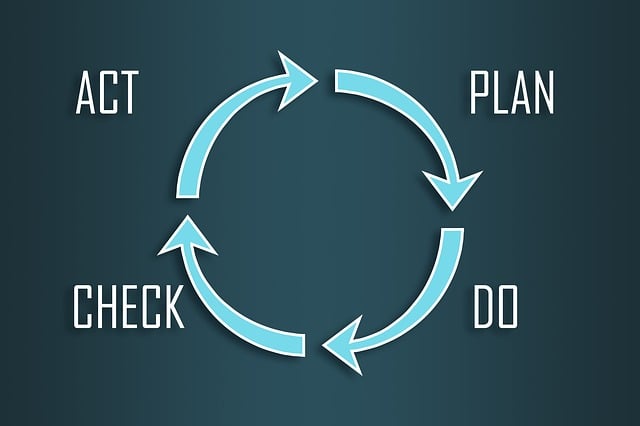Estate planning is crucial for everyone, not just the wealthy or terminally ill. Neglecting it can lead to legal battles, emotional stress, unexpected tax implications, and potential disinheritance. Create an estate plan to control asset distribution, respect your wishes, and protect your family from legal complications. Regularly review and update your plan every few years or after major life events. Consult a financial advisor or lawyer for inheritance tax planning. Consider unique needs of beneficiaries and implement proactive measures like setting up trusts. Document your wishes clearly and have open conversations with family. For complex assets, consult an experienced estate planning attorney to avoid disputes and ensure a robust inheritance plan.
Estate planning is a crucial yet often overlooked aspect of financial responsibility. Many individuals make common mistakes that can have significant repercussions down the line, affecting not just their estates but also their loved ones. This article guides you through the most frequent estate planning errors and offers practical solutions to help you avoid them, ensuring your peace of mind and a smooth transition for your beneficiaries. Discover how to navigate inheritance tax planning, consider future needs, and seek professional advice when needed.
- Misunderstanding the Impact of Not Having an Estate Plan
- Failing to Update Your Plan Regularly
- Neglecting Inheritance Tax Planning
- Not Considering Future Financial Needs of Beneficiaries
- Poor Communication and Lack of Documentation
- Overlooking Professional Advice for Complex Assets
Misunderstanding the Impact of Not Having an Estate Plan

Many people believe that estate planning is solely for the ultra-wealthy or those facing terminal illness. However, this couldn’t be further from the truth. Everyone, regardless of age or net worth, stands to benefit significantly from having a well-crafted estate plan in place. Without one, you risk falling victim to common inheritance planning mistakes that could have been easily avoided.
Not having an estate plan means your assets will be distributed according to state laws, which may not align with your wishes. It can lead to costly and time-consuming legal battles among your loved ones, causing emotional stress during what’s already a difficult time. Furthermore, it might result in unexpected tax implications and potential disinheritance of beneficiaries you intend to provide for. By proactively creating an estate plan, you gain control over how your assets are managed and distributed, ensuring your wishes are respected and your family is protected from avoidable legal complications and financial burdens.
Failing to Update Your Plan Regularly

Many people make the mistake of creating an estate plan and then forgetting about it, assuming it will always be relevant. Life is unpredictable, and changes in your financial situation, relationships, or health can significantly impact your inheritance planning. For instance, a marriage, divorce, birth of a child, or significant investment can alter the dynamics of your estate, requiring updates to your will and other legal documents.
To avoid becoming a victim of this common estate planning mistake, it’s crucial to review and update your plan regularly. Set reminders to revisit your inheritance planning every few years or after major life events. Consider consulting an estate planning attorney during these check-ins to ensure your documents remain current and accurately reflect your wishes. Regular updates not only protect your loved ones but also help prevent any potential legal complications that could arise from outdated plans.
Neglecting Inheritance Tax Planning

Many people often overlook inheritance tax planning as a crucial aspect of their estate strategy. This is a significant mistake, as it can have substantial financial implications for beneficiaries and could lead to a substantial reduction in the value of an estate. Inheritance tax becomes relevant when assets are transferred to heirs upon your passing, and proper planning can help ensure that more of your wealth reaches those you intend to provide for.
To avoid this common estate planning mistake, it’s essential to consult with a financial advisor or lawyer who specializes in inheritance tax. They can offer tailored advice based on your circumstances, including strategies such as gift-giving thresholds, trust creation, and asset placement. By proactively addressing inheritance tax considerations, you can ensure that your legacy is preserved for future generations, allowing them to benefit from your hard work without the added burden of excessive taxes.
Not Considering Future Financial Needs of Beneficiaries

When drafting an estate plan, one of the most frequent mistakes people make is failing to consider the future financial needs of their beneficiaries. This oversight can lead to significant issues down the line, causing unintended consequences for loved ones who depend on the inheritance. It’s crucial to anticipate how your assets will support and sustain the individuals you wish to leave them to, especially if they have unique circumstances or requirements. For example, children or disabled relatives may need access to funds in a way that simply passing along a lump sum might not accommodate.
By taking the time to explore these needs, you can implement strategies to ensure your estate plan aligns with both your wishes and the best interests of your beneficiaries. This might involve setting up trusts, designating guardians for minor children, or choosing the right investments to provide long-term financial security. Such proactive measures demonstrate thoughtful inheritance planning and help avoid common estate planning mistakes, ensuring a smoother transition during what can be an emotional and complex period.
Poor Communication and Lack of Documentation

Poor communication and lack of documentation are among the most common inheritance planning mistakes. Families often assume that conversations about estate planning will naturally occur, but these discussions can be uncomfortable or avoided due to emotional sensitivities. As a result, important decisions may not be clearly communicated, leading to misunderstandings and potential conflicts among heirs.
Documenting your wishes is crucial for avoiding such issues. Comprehensive estate planning involves creating clear, written documents like wills, trusts, and power of attorney forms. Keeping these records updated and accessible ensures that everyone involved understands the intended distribution of assets and responsibilities. Regular family meetings or conversations with an estate planning attorney can facilitate open communication and help prevent mistakes in inheritance planning.
Overlooking Professional Advice for Complex Assets

Many people believe they can handle their estate planning alone, especially if their assets are relatively simple. However, overlooking professional advice for complex assets is one of the most common inheritance planning mistakes. Estate plans become increasingly important when dealing with significant wealth, diverse investments, or unique circumstances like business ownership or real estate portfolios. Without specialized knowledge, these complexities can lead to unintended consequences and legal pitfalls.
To avoid this mistake, consider seeking guidance from an experienced estate planning attorney. These professionals have the expertise to navigate intricate asset structures, ensuring your wishes are accurately reflected in your will or trust documents. They can also advise on tax implications, minimize potential disputes among heirs, and create a robust inheritance plan tailored to your specific needs and goals.
Creating an estate plan is a crucial step in ensuring your wishes are respected and your loved ones are financially secured. By understanding and avoiding these common pitfalls, such as neglecting inheritance tax planning or failing to update regularly, you can take control of your future. Remember, proper documentation, regular reviews, and seeking professional advice for complex assets are key to minimizing mistakes. With careful consideration and proactive measures, you can rest assured that your estate plan will reflect your intentions, providing peace of mind for both you and your beneficiaries.

